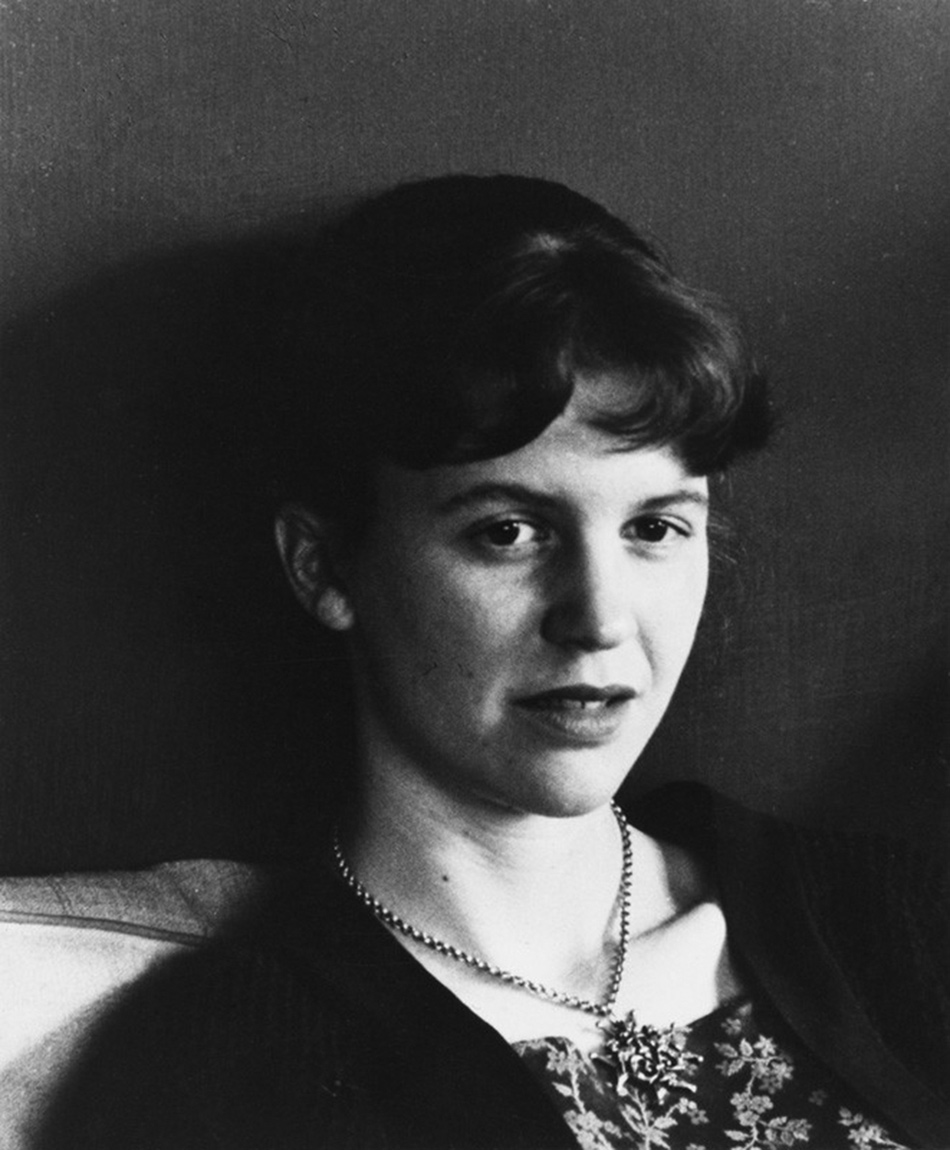The following is an extract from Elizabeth Hardwick’s review of Sylvia Plath’s The Bell Jar and Crossing the Water, which appeared in The New York Review in August 1971. It can be read in full here.
In Sylvia Plath’s work and in her life the elements of pathology are so deeply rooted and so little resisted that one is disinclined to hope for general principles, sure origins, applications, or lessons. Her fate and her themes are hardly separate and both are singularly terrible. Her work is brutal, like the smash of a fist; and sometimes it is also mean in its feeling. Literary comparisons are possible, echoes vibrate occasionally, but to whom can she be compared in spirit, in content, in temperament?
Certain frames for her destructiveness have been suggested by critics. Perhaps being born a woman is part of the exceptional rasp of her nature, a woman whose stack of duties was laid over the ground of genius, ambition, and grave mental instability. Or is it the 1950s, when she was going to college, growing up—is there something of that here? Perhaps; but I feel in her a special lack of national and local roots, feel it particularly in her poetry, and this I would trace to her foreign ancestors on both sides. They were given and she accepted them as a burden not as a gift; but there they were, somehow cutting her off from what they weren’t. Her father died when she was eight years old and this was serious, central. Yet this most interesting part of her history is so scorched by resentment and bitterness that it is only the special high burn of the bitterness that allows us to imagine it as a cutoff love.
For all the drama of her biography, there is a peculiar remoteness about Sylvia Plath. A destiny of such violent self-definition does not always bring the real person nearer; it tends, rather, to invite iconography, to freeze our assumptions and responses. She is spoken of as a “legend” or a “myth”—but what does that mean? Sylvia Plath was a luminous talent, self-destroyed at the age of thirty, likely to remain, it seems, one of the most interesting poets in American literature. As an event she stands with Hart Crane, Scott Fitzgerald, and Poe rather than with Emily Dickinson, Marianne Moore, or Elizabeth Bishop.
The outlines of her nature are odd, especially in her defiant and extensive capabilities, her sense of mastery, the craft and preparation she almost humbly and certainly industriously acquired as the foundation for an overwhelming ambition. She was born in Winthrop, Massachusetts. Her mother’s parents were Austrian; her father was a German, born in Poland. He was a professor of biology, a specialist, among other interests, in bee-raising. (The ambiguous danger and sweetness of the beehive—totemic, emblematic for the daughter.) Her father died and the family moved to Wellesley, Massachusetts, to live with their grandparents. The mother became a teacher and the daughter went to public schools and later to Smith College. Sylvia Plath was a thorough success as a student and apparently was driven to try to master everything life offered—study, cooking, horseback riding, writing, being a mother, housekeeping. There seemed to have been no little patch kept for the slump, the incapacity, the refusal….
Sylvia Plath went on a Fulbright to Cambridge University. She met and later married the distinguished poet Ted Hughes, and after a year or so back in America they returned to live in England. Her first book of poems, The Colossus, was published in 1960, the same year her daughter Frieda was born. In 1962, her son Nicholas was born—and then life began to be hard and disturbing, except that she was able to write the poems now being issued under the title Crossing the Water. She was separated from her husband, came back to London with two small children, tried to live and work and survive alone in a bare flat during one of the coldest years in over a century. The Bell Jar was published under a pseudonym just before she died, in February, 1963.
In the last freezing months of her life she was visited, like some waiting stigmatist, by an almost hallucinating creativity…. When she died she was alone, exhausted from writing, miserable—but triumphant too, achieved, defined and defiant.
I don’t see the death as a necessity for the greatness of the work. Quite the opposite. It is the feeling not the action that assaults our senses; the action gives a little shiver, and only that. If anything could have saved Sylvia Plath it would have been that she, in life, might have had the good fortune to be alive and exactly where she is today. She has won the green cloth—no writer ever wanted it more. She leaped onto the mountain. Even The Bell Jar is on the best-seller list. Not only has she confounded her “enemies,” she would have had money, power over her own life, fame, all of it by her own efforts. As it is now, the pathos and irony are too much to think about. Lois Ames, whom she scarcely knew, writing her biography; her books dribbling out; every piece of Mademoiselle and college magazine prose threatened; her own ungenerous nature and unrelenting anger sentimentalized.
Advertisement
Beyond the mesmerizing rhythms and sounds, the flow of brilliant, unforgettable images, the intensity—what does she say to her readers? Is it simple admiration for the daring, for going the whole way? To her fascination with death and pain she brings a sense of combat and brute force new in women writers. She is vulnerable, yes, to father and husband, but that is not the end of it at all. I myself do not think her work comes out of the cold war, the extermination camps, or the anxious doldrums of the Eisenhower years. If anything she seems to have jumped ahead of her dates and to have more in common with the years we have just gone through. Her lack of conventional sentiment, her destructive contempt for her family, the failings in her marriage, the drifting, rootless rage, the peculiar homelessness, the fascination with sensation and the drug of death, the determination to try everything, knowing it would not really stop the suffering—no one went as far as she did in this.
There is nothing of the social revolutionary in her, but she is whirling about in the center of an overcharged, splitting air and she understands especially everything destructive and negative. What she did not share with the youth of the present is her intense and perfect artistry, her belief in it. That religion she seemed to have got from some old Prussian root memory of hard work, rigor, self-command. She is a stranger, an alien. In spite of her sea imagery—and it is not particularly local but rather psychological—she is hard to connect with Massachusetts and New England. There is nothing Yankee in her. So “crossing the water” was easy—she was as alien to nostalgia and sentiment as she was to the country itself. A basic and fundamental displacement played its part.
Long after I had been reading her work I came across the recording of some of her poems she made in England not long before she died. I have never before learned anything from a poetry reading, unless the clothes, the beard, the girls, the poor or good condition of the poet can be considered a kind of knowledge. But I was taken aback by Sylvia Plath’s reading. It was not anything like I could have imagined. Not a trace of the modest, retreating, humorous Worcester, Massachusetts, of Elizabeth Bishop; nothing of the swallowed plain Pennsylvania of Marianne Moore. Instead these bitter poems—“Daddy,” “Lady Lazarus,” “The Applicant,” “Fever 103°”—were “beautifully” read, projected in full-throated, plump, diction-perfect, Englishy, mesmerizing cadences, all round and rapid, and paced and spaced. Poor recessive Massachusetts had been erased. “I have done it again!” Clearly, perfectly, staring you down. She seemed to be standing at a banquet like Timon, crying, “Uncover, dogs, and lap!”
This Issue
May 23, 2013
MoMA’s Act of Destruction
An Original Thinker
Maggie




